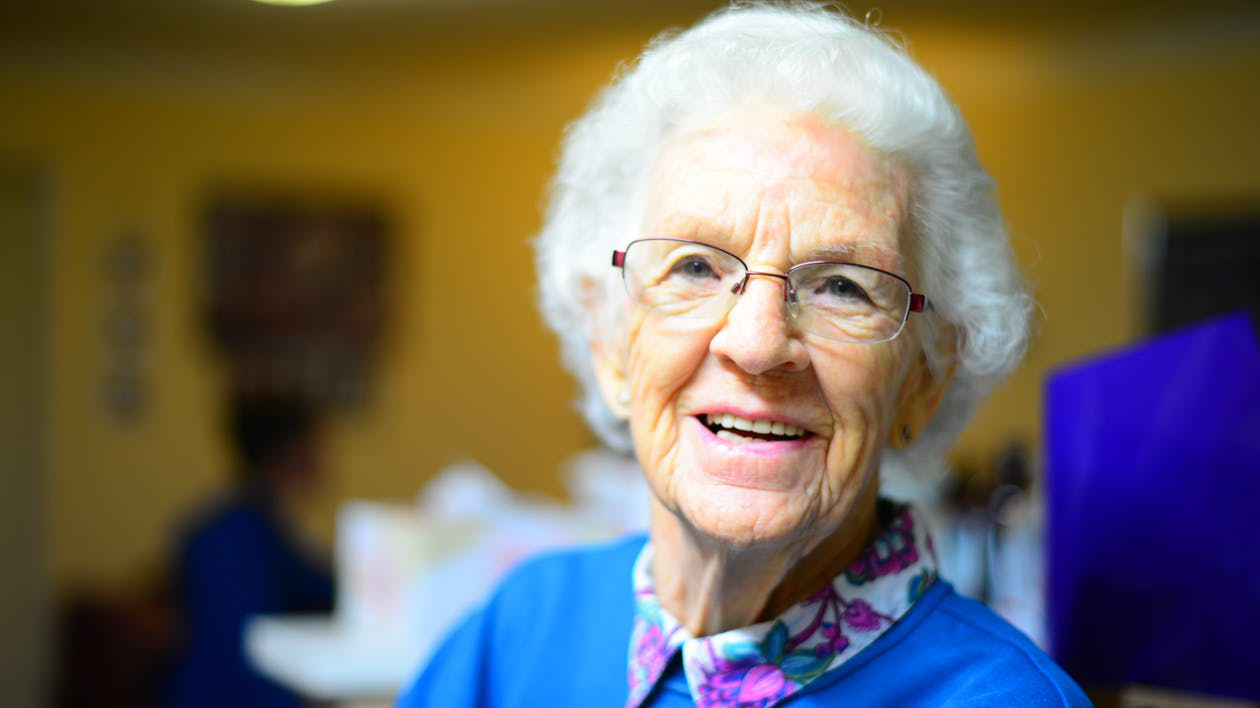Caring for the Emotional Needs of the Elderly
Growing older has its pros and cons. Older people enjoy being free from hectic jobs, having more time at their disposal to spend on their favorite pastimes, or moving to their vacation homes to enjoy nature.
On the other hand, growing older can bring a lot of problems with it as well. It’s common for older people to get bored, feel insecure and lonely, and miss the hustle and bustle of daily life. Around 40 million Americans are now above the age of 60. Let’s see what their emotional needs are and how they may be fulfilled.
Interdependence
A little child needs great support from their parents as they grow up, and most parents adequately provide this support in the form of unconditional love and security. These roles are reversed as parents grow older.
An older person can’t possibly take care of themselves alone when health issues creep in. Therefore, they need to be taken care of. Ideally, these needs would be fulfilled by their loved ones, but if they can’t, a good assisted living community is quite capable of catering to them.
Security
As our health depreciates and our mobility becomes limited, we start to feel insecure. This includes worrying about our physical and financial security.
Installing safety systems at our older loved one’s homes and providing them with a financial fallback option is a great way of ensuring they don’t worry needlessly.

Human Connection
It’s human nature to want meaningful connections and company. According to the AARP Foundation, social isolation has adverse health effects that are as severe as daily smoking. Since a lot of older people’s friends and family pass away, it’s advised that their immediate children take some time out for them or that they have communal bonds in an assisted living community.
Enjoyment
Everyone needs some enjoyment on a daily basis. Seniors might enjoy gardening, reading, or video games. Make time for them and try to help them through their favorite hobbies. Gardening with them, for instance, is a great way of becoming closer to your older loved one. On the other hand, an assisted living community can also give them the ability to practice their hobbies.
Luxury Old Age Home in Hollywood, CA
AvantGarde Senior Living and Memory Care in Hollywood, California is a luxury old age home service.
Security is ensured with state-of-the-art technology and your senior loved ones get a lot of enjoyment opportunities, such as a pool table, outdoor BBQ, mini golf, restaurant style dining, Wi-Fi, etc.
We guarantee that when you come to visit your loved one, you’ll be happy to know that they’re cared for like our own. Visit our website or call us now at (818) 881-0055 for more details.
Mistakes to Avoid When Talking to Elderly
Communicating with an elderly person may appear to be an ordinary task, but most of us end up using ineffective communication strategies when we speak to our senior loved ones. Without even realizing it, we end up disrespecting and upsetting our elderly relatives.
This can be avoided if we use an elder-friendly approach and avoid these mistakes.
Not Adapting To Their Issues
Old age brings about a set of lifestyle changes. Your loved one may be affected by minute environmental changes that you can easily ignore, and have a new set of needs and requirements.
It’s imperative that you adapt to these changes. If they’re bothered by background noises and harsh light, consider making changes accordingly. Use thoughtful gestures during conversation to make it easier for them to keep up with the flow of words. For instance, a lot of senior individuals take aid of lip-reading while they communicate. Avoid covering your lips when you speak so that they can see them clearly and recognize what you’re saying.
Being Patronizing
Communicating respectfully is essential for all healthy conversations, regardless of how old the person you’re speaking to is. However, we often tend to do the opposite when we talk to our elderly relatives and acquaintances, unintentionally being disrespectful instead.
This can manifest in different ways. For example, you may be trying to help them when you offer your advice, but using a patronizing tone irks them and communicates disrespect. A common mistake people make when speaking to older individuals is assuming that they’re all short of hearing. Unless you know they have a hearing difficulty, talking extra slow, loud, and repeating sentences can come across as extremely disrespectful.

Similarly, don’t invalidate their lived experiences and feelings. They may not be able to comprehend the views that evolve with changing times, holding steadfast to their beliefs. While it’s okay to disagree, don’t belittle them for thinking differently than you do and invalidating their opinions and life experiences.
Being Impatient
We’ve all had bursts of impatience at some point while communicating with our elderly loved ones. It may have happened while you tried explaining how a particular device works to your grandmother, or when you had to listen to your uncle recall a story you had already heard several times before.
Here’s the thing about being impatient, though: your elderly relatives can detect it. They understand body language just as well as you do, and if you indicate annoyance and impatience through your tone or facial expressions, they’ll know. This can be extremely hurtful and insensitive to them, and they may feel like they’re taking up too much of your time and burdening you.
It’s very important that you’re patient when speaking to your older acquaintances and loved ones. Their memory isn’t as sharp as yours, their movements not as quick, and it may take them longer to grasp something new. Be mindful of their needs and remain patient to avoid upsetting them.
AvantGarde Senior Living & Memory Care is a senior living community in Hollywood, California that provides independent living, assisted living, and memory care services.
Call us at (818) 881-0055 to learn more about our luxurious senior housing unit!
How the Lack of Sleep Triggers Alzheimer’s
Insomnia isn’t the only problem that can affect you if you’ve been losing more sleep than is necessary. According to sources, the daily requirement for sleep for adults aged older than 65 is a solid 9 hours. That sleep deprivation has links with dementia is something that has been proven by many researches and studies, among them Washington University School of Medicine and National Institutes of Health. In this blog we explore what actually happens inside the brain and why sleep is so important, especially for the older gentry who need the right amount of sleep in order to ward off some of dementia’s adverse effects.
Beta Amyloid
Between the neurons in the brain are filled with beta-amyloid, which is a metabolic waste product. When this waste product accumulates in the brain it leads to impairment in many brain functions, and ends up causing Alzheimer’s, or other forms of dementia. When someone suffers from Alzheimer’s in particular, beta-amyloid gets clumped together in clots which harden into plaques, and thus the smooth communication between neurons is hindered.
What does all of this have to with sleep though? Read on.
Sleep and Beta-amyloid
When you sleep, the beta-amyloid is restricted from accumulating in your brain, and is kept duly off neural premises. Losing sleep, thus, speeds up the process of having this metabolic waste accumulate inside your brain, and Alzheimer’s is also more speedily acquired. Combine having Alzheimer’s already and losing sleep, and the problem is exacerbated tenfold, with double the usual hassle.

Lack of sleep thus doesn’t just affect the brain cells but also causes dementia to take hold. When someone has Alzheimer’s, their beta-amyloid level increases by 43%. And it doesn’t just subside when you’ve had a good night’s rest. What you need, therefore, is a regular sleep pattern that can fight this negative phenomenon.
How to Ensure You’re Getting the Right Amount of Sleep
Having an environment that is relaxing so as to help put you or your loved one to sleep is important. A comfortable surrounding and cozy bedding, the right kind of lighting and proper meals, an overall relaxed physical state and a stress-free disposition—all contribute to a good night’s sleep.
Looking for a Senior Living Community Near You in Van Nuys?
AvantGarde ensures that is environment is luxurious and relaxing enough for elderly members to go comfortably to sleep. We can be reached at (818) 881-0055 or you can leave us a message here.
Your Parent’s Dementia Diagnosis – Finding the Right Words to Say
No matter how much we evolve and how significantly we develop our language skills, there will always be times when we’ll be at a loss of words. Times such as when you meet someone who has recently lost someone close, or when you find out that a loved one has just been diagnosed with a disease such as cancer or dementia.
All your life it’s been your parents who have known what to say, and how to say it. Now, all of a sudden, there’s a reversal of roles, with you having become the caregivers and the parents becoming dependent on you. Role reversal in itself is a big change which comes with its own set of psychological issues and dilemmas; that can actually take some time adjusting, according to further studies.
The first thoughts that strike you aren’t even thoughts but an amalgam of the feelings of confusion, disbelief, and despair.
“Why did this happen to my parent?”
“Have I been somehow at fault with this?”
“How am I going to cope with this and what am I going to say to my parent about this?”
Dementia is, at the moment, an incurable condition. This makes matters worse for when you’re trying to think of something appropriate to say to your parent. But don’t worry—for we have some ideas.
Prepare Yourself

Anticipation makes the best warriors. When in a battlefield, it is not the countering of the bullet or the shell but it anticipation that helps soldiers fight well. So let it be with you. Take some time before you can say anything to your parent. Don’t blurt out but think, ponder, reflect upon the prospect. Also ensure that they themselves are ready to have a conversation initiated with you on the matter. Read their body language: do they have their arms crossed across their chest? Are they looking down or averting their gaze from you?
Tone it Down
Your words on their own will not have much impact if they are not delivered in just the right tone: a helpful tone, not a pitiful or a pathetic one, mind you. Let them know, through the modulation of your tone and voice, that you’re here for them and that you’ll stand by them regardless of what comes their way. Don’t try to downplay the severity of their condition, don’t try to dismiss the diagnosis, and don’t let your sadness show through. Take pauses where needed, and avoid talking about their condition to others while they themselves are present in the room.
What NOT to Say
Most importantly, here’s a checklist on what you should NEVER say or do to a loved one who has been diagnosed with dementia:
- “You’re making me repeat myself, I already told you that”
- Longer sentences, with a ton of ideas stuffed in between. Remember (because at least youcan) that it will be very difficult for your loved one to keep track
- Absolutely refrain from treating your parent like a child. You still are, and will always be, their child.
- Don’t ask them what they did a couple of hours ago—stick to the present.
- Please refrain from trying to make them remember things because (a) you’re not a professional and (b) you’ll only confuse your loved one.
Connect with AvantGarde Today
If you’re looking for a credible senior living community in California with staff that has been trained for dementia patients, get in touch with us today.
The Power of Music: How Music Benefits Seniors in Assisted Living Communities
No matter what age you are, music will always have an impact on you. It builds connections to important events in our lives which is why it’s effective in improving the memory of people with Alzheimer’s.
Benefits of Companionship in Your Later Years
It’s a sad truth, but aging and loneliness go hand-in-hand in most parts of the world. 43% of the elderly population reports feeling lonely and isolated. According to medical studies, this sense of being ‘left out’ and social estrangement can trigger health conditions like dementia and can even lead to an early death if the person is not given the care they need in time.
Medication Risks in Seniors – What Caregivers Need to Know
Medication can be a double-edged sword for elderly people. This is because changes due to aging and disabilities can cause medication related problems (MRPs). This is why caregivers need to give importance to the precise management of daily doses.Read more
Beating the Retirement Blues
Most people have their own visions of life after retirement. Some plan on taking trips, taking up an old hobby or spending more time with family and friends. However, things don’t always turn out as expected.
Retirees often find themselves feeling like they’re losing their sense of purpose and end up experiencing feelings of depression and anxiety. Also known as the retirement blues, these feelings can be pretty difficult to cope with and their management requires a considerable amount of time and energy.
Here are some tips that can help you deal with post-retirement blues.
4 Ways Socializing Benefits Older Adults
Humans, regardless of their age, have an innate need to socialize. Having a strong network of friends and family is essential for the emotional well-being of every individual, regardless of their age. However, keeping up with loved ones can sometimes be a challenge for older adults a.k.a seniors.
Health issues, mobility limitations, and decline of energy are some factors associated with old age that tend to leave a strong impact on the social life of elders. Absence of consistent social interactions can lead to deterioration of the cognitive health of seniors and may even result in reduced self-esteem. On the other hand, maintaining an active social life can decrease stress, lower anxiety levels and increase lifespan in seniors.
Reducing Joint Pain in the Winters - Senior Care
According to studies by the Centers of Disease Control and Prevention, an estimated 15 million U.S. citizens reported arthritis related severe joint pain in 2015. Decreasing temperatures can be devastating for individuals suffering from joint pain, as persistent pain tends to worsen in low temperatures.









